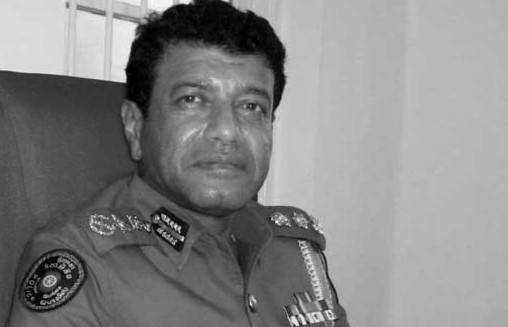Image: Former Senior Deputy Inspector General of Police, Lalith Jayasinghe
By Basil Fernando.
The sentencing of a former Senior Deputy Inspector General of Police for giving illegal orders not to arrest a suspect.
The reported sentencing of former Senior Deputy Inspector General of Police, Lalith Jayasinghe, for giving illegal orders to prevent the arrest of a person allegedly involved in the shooting which resulted in the death of some persons, was a sentence of five years in prison, by the High Court Judge of Ratnapura. While the particular case may be of interest from a political point of view due to the Member of the Parliament who was later arrested and convicted and later acquitted by the Court of Appeal, this case is of enormous importance from another point of view. This is one of the unique cases in which a very senior Police officer who has held the rank of a Senior Deputy Inspector General of Police has been held guilty of giving illegal orders to an Officer-In-Charge of a Police station who was carrying out an inquiry into the relevant shootings and murders.
The importance lies in the fact that the complaints about the interferences of higher Police officers into the workings of the Police investigators who are investigating into crimes, is a complaint that is being heard so very frequently. In fact, it is no exaggeration to say that such interferences have reached epidemic levels. This instance where the investigating Officer-In-Charge of the Police had the courage to complain about this incident and pursue the complaint over a period of almost eight years till a conviction has been reached should set an example for others who are facing similar situations throughout the country.
The importance of this case lies in the fact of the key role played by the Officers-In-Charge of the Police who according to the Criminal Procedure Code of Sri Lanka have the duty to conduct inquiries into all crimes which are being reported in their respective jurisdictions. It is the function of the Officers-in-Charge of the Police to ensure investigations into all crimes that keep the security of the society and also to provide security to the people. People can walk on the roads peacefully and conduct their daily affairs such as small businesses and many other transactions and also conduct their neighbourhood relationships peacefully, only due to the fact that the legal system of Sri Lanka has provided like it has also provided in almost all countries for the function of the Police to intervene into any kind of criminal interference into the freedoms of the people by exercising the powers given to them as investigators into crimes.
Perhaps, the one issue that may be of general interest to all families throughout Sri Lanka today is the duty of the Police to investigate into various crimes relating to the drug trade as this overwhelming problem has emerged in this society affecting families, schools, neighbourhood relationships and also many other factors which cause social unrest and its instability due to the failures of those criminal investigators who have failed to bring this widespread crime under control.
When inquiries are being made into by some of the Police officers, many of them frankly tell that they have tried their best and are in fact trying their best to get this situation under control but that they are prevented from acting because of the orders that are coming down to them from their higher authorities. When a higher ranking Police officer interfere with the investigations into crimes, they are in fact acting criminally as the instructions they give to the local Police stations to prevent them from doing investigations itself becomes a source of the increase of crimes.
Thus, Sri Lanka must today deal with the issue of higher ranking Police officers themselves being part of a criminal enterprise directly or indirectly by the manner in which they obstruct the investigations of crimes by the Officers-In-Charge of the Police who exercise their powers under the Criminal Procedure Code of Sri Lanka. In fact, the kingpin of crime control is the Officers-In-Charge of the Police. If their work is interfered with by a higher officer, this is a very serious crime and also an action against social stability.
The sabotage of criminal investigations
There is a need for a strategy to stop the sabotage of investigation of crimes by higher ranking Police officers.
A section of higher ranking officers has become a formidable obstacle for crime investigation in Sri Lanka. Had it not been for this, much of the very serious crimes including those relating to the drug trade can be stopped overnight.
These officers in fact offer a greater threat to social stability, peace and the psychological well-being of people including family stability than any other section of society. Thus, they are by now a national security threat, because a crime ridden society threatens every aspect of society.
These officers may argue that they are a creation of bad politicians. However, this is no excuse and not a defence. Besides, as it had happened in this case, politicians will not come to rescue these officers when they face criminal charges in courts.
(An Article by the Asian Human Rights Commission)
